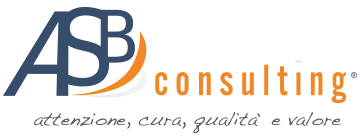E-commerce (B2C) – Distance selling (Optional OSS and IOSS scheme)
Subjects who carry out distance sales of goods and services in UE through online platforms to private recipients (so-called “B2C” activities) from 1 July 2021, must pay VAT in the country of destination of the goods upon exceeding the threshold of turnover of 10,000 euros in the EU (Legislative Decree no.83 of 25 May 2021, published in the Official Gazette on 15 June 2021, in transposition of the provisions contained in the EU Directive no. 2017/2455).
Distance sales of goods in particular are called “indirect electronic commerce operations“, where the collection of the order is carried out on electronic support (email, internet platforms, etc.) but the methods of sale and delivery of the goods remain the ordinary one.
The Italian system equates indirect electronic commerce to mail order sales (Article 22 of Presidential Decree no. 633/72), with exemption from the obligation to issue an invoice, unless the same is promptly requested by the customer, moreover the exemption from the obligation to certify payments by means of a receipt is provided (Article 2 of letter oo) of Presidential Decree no. 696/96).
The distance selling discipline concerns:
- intra-community distance sales pursuant to art. 38-bis, paragraphs 1 and 3, of Legislative Decree 331/93;
- distance sales of goods and goods imported from third countries or third territories pursuant to art. 38-bis, paragraphs 2 and 3, of Legislative Decree 331/93;
- domestic sales of goods by taxable persons not established in the EU to private consumers, facilitated through electronic interfaces;
- the supply of services to private consumers by taxable persons not established in the EU (or established in the EU but not in the member state of consumption)
The optional MOSS (Mini One Stop Shop) scheme, which can be used for direct electronic commerce, was extended, from 1 July 2021, also to intra-community distance sales of goods and to the general provision of services to private consumers (B2C).
The Mini One Stop Shop of the Revenue Agency has taken the name of OSS (One Stop Shop) and can be used as an option to avoid the burden of making direct identification for VAT purposes in each of the EU countries where the operations are carried out towards private customers over the threshold of 10,000 euros in turnover.
The option for the OSS regime reduces the burden of businesses by eliminating the obligation to issue an invoice, keep VAT records and fill out the annual VAT return for operations carried out under this regime.
These operations are declared through the web portal made available to the Revenue Agency, through which the payment of the VAT due in the various member states must also be made.
The OSS regime, depending on the subject who opts, is divided into:
- OSS-EU regime, which taxable persons established and not established in the EU can opt for intra-community distance sales and entities established in the EU for all services rendered to private consumers in another EU Member State. The State of identification for access to the special regime is the one in which the operator is established;
- OSS-non-EU regime, which taxable persons not established in the EU can opt for all services rendered to private consumers in the EU.
The optional IOSS (Import One Stop Shop) regime, governed by Article 74-sexies.1 of Presidential Decree 633/1972, introduced by Legislative Decree 83/2021, allows suppliers who sell goods shipped or transported from a third country or a third territory to buyers in the EU to collect VAT from the buyer on distance sales of imported goods of modest value and to declare and pay this VAT through the one-stop shop for imports (IOSS).
More specifically, if IOSS is used, the import (release for free circulation) of goods of modest value into the EU does not discount VAT at customs. VAT is payable as part of the purchase price by the buyer in the country of destination. The VAT of the Member State in which the buyer indicates that the goods must be delivered is applied.
Starting from 1 July 2021, the current VAT exemption on imports of modest value (equal to 22 euros) is removed, at the same time, for distance sales, also via electronic interfaces, of goods imported from third countries or territories of value not exceeding 150 euros, the payment of the import VAT is simplified if the taxpayer opts for the special IOSS (Import One Stop Shop) regime.
However, even from 1 July 2021 the exemption from duties reserved for goods with a value of less than 150 euros remains, as established by EU Regulation no. 1186/2009.
This optional regime provides that the taxpayer pays to the Italian Treasury, cumulatively and on a monthly basis (with presentation of a specific monthly return), the tax due for goods imported into any EU country (the VAT rate to be applied on the goods is that provided for in the Member State where the transfer takes place).
The option to the IOSS regime exempts the taxpayer from the obligations of invoicing, registration and VAT return, as they are replaced by a specific monthly return.
Summary table of the OSS and IOSS regime
| Case | Regime |
|---|---|
| IT Supplier sells goods to FR customer not subject to VAT via e-commerce with shipment of goods from IT to FR | OSS - there is no need for the Italian supplier to identify for VAT purposes in FR but can fulfill the FR VAT through the OSS platform upon exceeding the protection threshold of 10,000 euros of total sales in the EU |
| US supplier, identified in IT for VAT purposes by tax representative, imports goods into DE for sale via e-commerce to DE customer not subject to VAT, with goods shipping from USA to DE | IOSS - The supplier does not pay VAT on import into DE if the goods are worth less than 150 euros and will pay VAT in DE via the IOSS platform with monthly transfer. In this case, unlike the OSS regime, there is no turnover threshold |
| IT supplier, imports goods from RUS to AU with sale through e-commerce to AU customer not subject to VAT, with shipment of goods from RUS to AU | IOSS - The IT supplier does not pay import VAT in AU if the goods are worth less than 150 euros and will pay VAT in AU via the IOSS platform with monthly transfer. In this case, unlike the OSS regime, there is no turnover threshold |
| IT supplier, with goods in storage in DE, sells goods to DE customer not subject to VAT via e-commerce with shipment of goods from DE to DE | The supplier will not be able to use the OSS regime because the goods do not make any physical transfer from one state to another to reach the final consumer, but in reality we are in the presence of an internal transfer in DE, subject to local rules. The Italian supplier will have to settle the VAT due in DE through their direct identification or tax representation |
| NL Vendor sells goods to non-VAT IT customers via e-commerce, with shipment of goods from NL to IT | The NL supplier will be able to use the OSS platform to settle the IT VAT since it is an intra-community distance sale and will not need to identify itself for VAT purposes in IT |
| ES supplier, identified for VAT purposes in IT, with logistics warehouse in IT, sells via e-commerce to FR customer with shipment of goods from IT to FR. | OSS - there is no need for the ES supplier to identify himself for VAT purposes in FR but can pay the FR VAT through the OSS platform directly with registration of the IT VAT number on the platform, upon exceeding the protection threshold of 10,000 euros of total sales in the EU |
The Marketplace Manager as an alleged supplier
Pursuant to art. 14-bis, paragraphs 1 and 2, of Directive 2006/112 / EC a taxable person who facilitates the transfer of goods through the use of an electronic interface such as a virtual market, a platform, a portal or similar means (Marketpalce for example Amazon) is considered a presumed supplier in case of:
- distance sales of goods imported from third territories or third countries in the context of shipments of intrinsic value not exceeding 150 euro, often referred to as low value goods; or
- supply of goods within the Community by a taxable person not established there to a person who is not a taxable person; both national sales and intra-community distance sales of goods fall within this scope.
In other words, the taxable person who facilitates the assignment through the use of an electronic interface becomes a presumed supplier for the supplies of the following, made through its electronic interface:
- goods included in shipments with an intrinsic value not exceeding 150 euro supplied to a buyer in the EU and imported into the EU, regardless of whether the indirect seller / supplier is established in the EU or outside its territory;
- goods already released for free circulation in the EU and goods located in the Union, if those goods are supplied to buyers in the Union, regardless of their value, when the indirect seller / supplier is not established in the EU.
In order to ensure the taxation of sales in which they are involved as “facilitators”, platforms, portals or similar means (“electronic interfaces”), it was considered appropriate by the Community legislator to involve these subjects in the collection of the tax, considering them, on the basis of a legal fiction, as the subjects who carry out the purchase and sale of the goods subject to the facilitated operations.
Basically, the single operation is split into two distinct operations: a first B2B sale from the supplier to the digital platform; a second B2C transfer from the platform to the end customer.
Fiscal representation for online sales B2C
If you are interested in obtaining a price quotation for the professional service of fiscal representation for online sales from ASB consulting Srl, or simply if you wish to have further clarifications, you can write directly to the email address info@asbconsulting.it or call our office at the number +39 049 8726744. We will be happy to answer your questions and solve your doubts.
Or fill out the form below!

